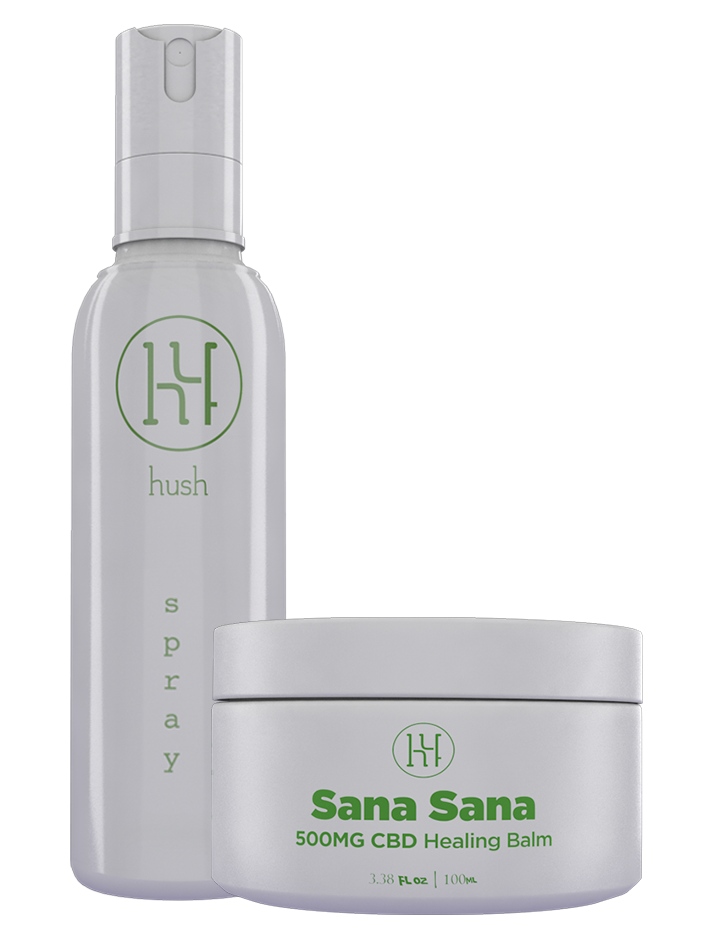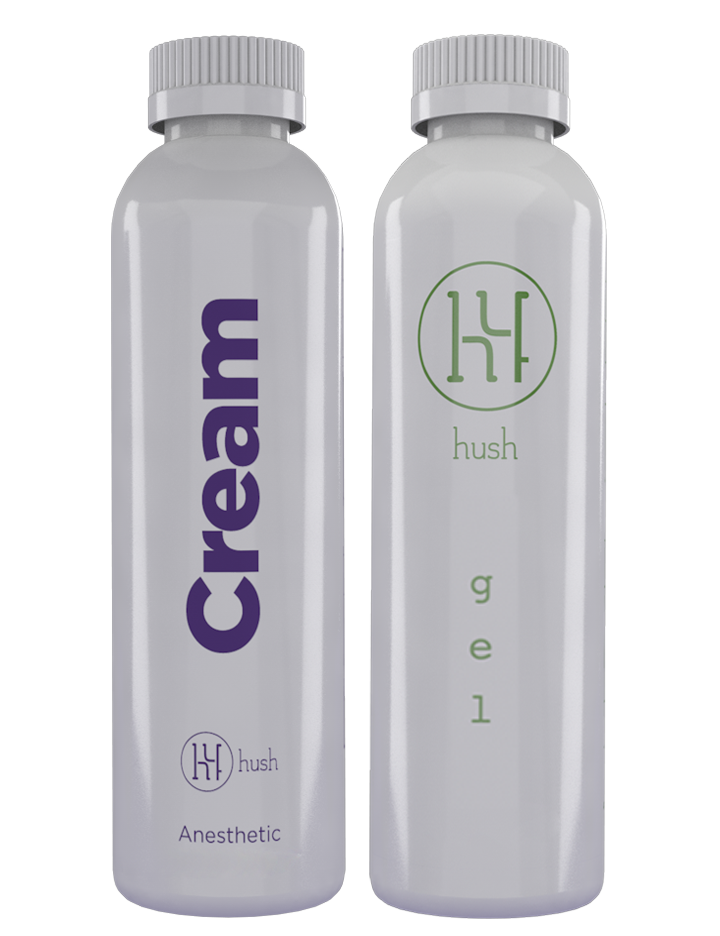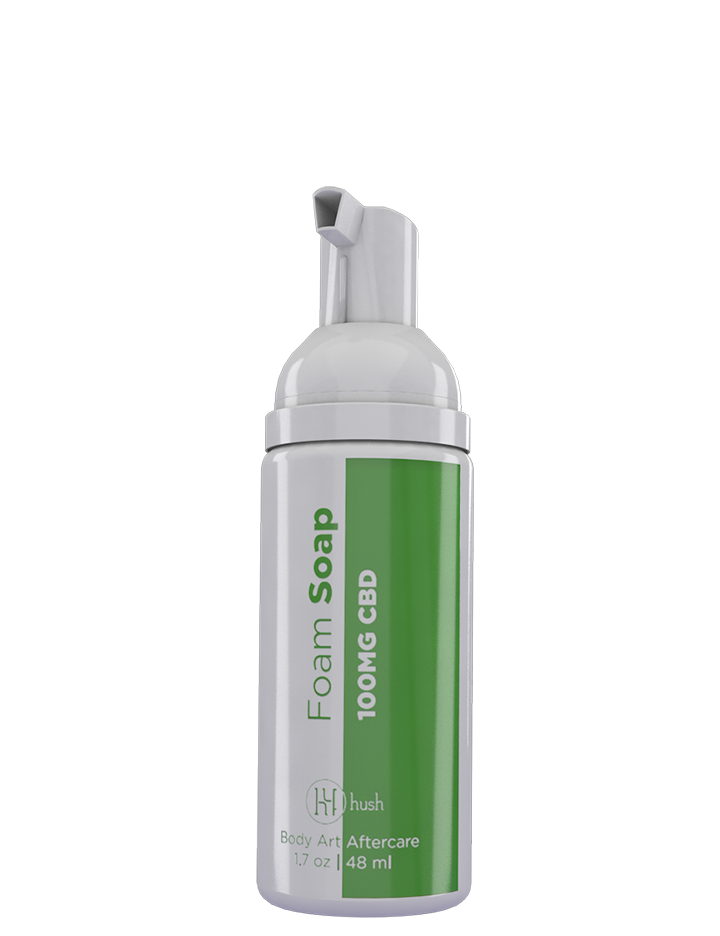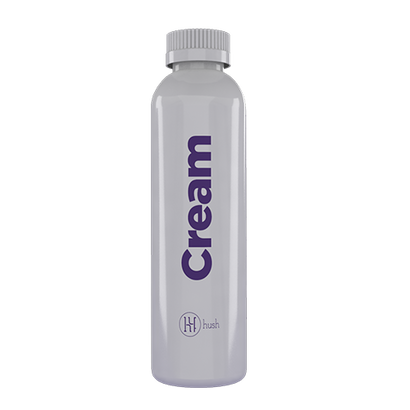
$14.99
Severe tattoo ink allergies are very uncommon, but they can be serious if you don’t spot them on time. Here’s what to look for, how to determine if you’re experiencing an ink allergy, and what to do if you might be allergic to your new tattoo.
Is It Possible To Have a Tattoo Ink Allergy?
Anyone can be allergic to anything. It’s even possible to be allergic to water. It’s a lot more common to have allergic reactions to things like cosmetics, soaps, dyes, and tattoo ink.
If you have a skin condition that increases your skin's sensitivity, you may be more likely to experience adverse reactions or hypersensitivity reactions to tattoos or permanent makeup. If you have a tattoo ink allergy, it’s more likely that you’ll be allergic to specific pigments than tattoo ink in general.
You may still be able to get a tattoo if you change your choice of colors. A red tattoo may be off the table, but you might still be able to enjoy a beautiful black linework piece. It all depends on the unique reaction of your body.
Are Some Inks More Likely To Cause an Allergic Reaction Than Others?
It’s possible to be allergic to any type of pigment, but some allergies are more common than others. Most people with tattoo ink allergies react strongly to red ink or inks with red pigments.
This can include certain shades of purple, pink, brown, or orange mixed with red colorants. Red tattoo ink isn’t inherently dangerous. It just happens to be one of the most “hit or miss” types of pigment.
Red tattoo pigments can be derived from naturally occurring or synthetic versions of pigments called cadmium red, cinnabar, and iron oxide. These pigments are the most common source of an allergic reaction, but additives in tattoo ink can also be the culprit.
Inks used for permanent makeup often contain a lot of red or pink hues. People who get permanent makeup tattoos may be more likely to experience symptoms of an ink allergy simply because the most common reaction trigger is prevalent in permanent makeup inks.
Are There Hypoallergenic Tattoo Inks?
Things that are less likely to cause an allergic reaction are referred to as hypoallergenic. You might have heard of hypoallergenic dogs or cats for people who want pets but often experience reactions to their dander or fur. The hypoallergenic label is often used on makeup and skin care products.
The truth is that nothing can truly be hypoallergenic. Some things pose a much lower risk for an allergic reaction, but nothing can eliminate the risk entirely.
There are special inks formulated to be free of common allergens. If you have a history of allergic reactions to inks or certain pigments, they may be a better fit for you. Ask your tattoo artist if they have or use these inks.
How To Test for a Tattoo Ink Allergy
Ink allergy tests aren’t usually necessary, but people with known allergies or sensitive skin might want to be a little more cautious in their approach to their new tattoo. Artists often recommend patch tests to see how the skin responds to certain types of ink.
Your tattoo artist can tattoo tiny dots or lines in an inconspicuous area, sometimes in the area they intend to tattoo over. Patch testing allows you and your artist to determine how your body will respond.
If you’re allergic to the ink, the reaction will be minimal. It’s much easier to manage an allergic reaction in a tiny confined spot than it is to manage a reaction when you’re allergic to your whole tattoo.
How To Spot an Ink Allergy
Most people will find that an ink allergy makes their tattoos scaly and raised. The tattoo may blister around the portions where the pigment was used. You may also experience allergic contact dermatitis on the areas of your skin where the ink touched, even if it wasn’t tattooed into your skin in those areas.
You’re likely to experience excessive itchiness in the general area due to a histamine reaction, which occurs when your body detects the presence of an allergen. The itchiness can be combated with over-the-counter antihistamines, but the antihistamines won’t treat the underlying cause.
What To Do When You Think You’re Experiencing a Tattoo Ink Allergy
If you think you’re experiencing a tattoo ink allergy, you must be sure you’re not dealing with an infection. Both require immediate care and attention, but they’re treated completely differently. Once you know for sure you’re having a negative reaction to tattoo ink, it’s time to call in a pro.
Make Sure It’s Not an Infected Tattoo
An infection and an allergic reaction can sometimes look similar in a tattoo. Both will cause discomfort, inflammation, loss of ink, and weeping tattoo wounds. It can be difficult to tell if you’re experiencing an allergic reaction or an infection.
If it’s an allergy, the symptoms will usually begin right away. An infection sometimes takes a few days to become apparent.
If you didn’t follow your aftercare instructions or if a professional didn’t tattoo you in a sterile environment, you may have an infection that needs immediate treatment. If your artist was a pro and you followed your aftercare instructions to the letter, you might be dealing with an allergic reaction.
Give Your Dermatologist a Call
Dermatologists often deal with skin reactions like eczema or psoriasis, but they’re well-versed in any issue that may be affecting the skin. Dermatologists frequently see patients with tattoo reactions and any inflammatory reactions that may impact their skin's health.
Your dermatologist will review treatment options with you. One of the most common side effects of a tattoo ink allergic reaction is loss of ink.
Your skin will reject the tattoo, leaving the area patchy. Your dermatologist may be able to help you with laser tattoo removal to clean up the area of tattooed skin after the reaction has healed. Further down the line, you may be able to get a new tattoo over the area. If you only react to colored ink, try a black tattoo.
The Wrap-Up on Tattoo Ink Allergies

Tattoo ink allergies are rare. They can be very uncomfortable and might require a trip to a skincare pro. In the meantime, keep your tattoo clean and take the edge off of the uncomfortable sensation with some numbing cream.
If you don’t have any tattoos and are concerned that you may experience a reaction to tattoo ink, try a patch test first. A patch test can give you peace of mind and help you prevent a larger reaction if your body doesn’t tolerate certain pigments.
Sources:
Could You Be Allergic to Your Skin Care Products? | Cleveland Clinic





